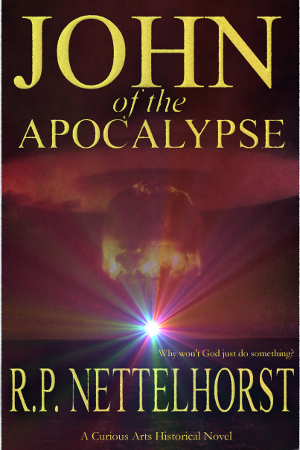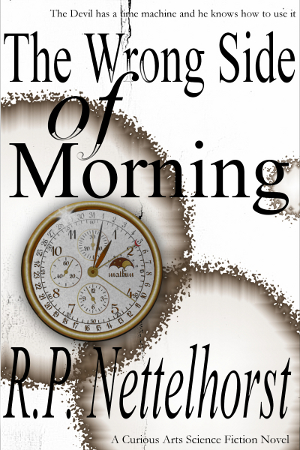The first episode of Star Trek aired on Thursday, September 8, 1966—nearly forty-eight years ago. The original series was on the air for only three years, ending its run in 1968 In 1973 an animated version of the series appeared (for a total of 22 half-hour episodes) that aired Saturday mornings until 1974. Star Trek would not return to television for another thirteen years, when Star Trek: The Next Generation appeared in syndication in 1987 and lasted seven years until 1994. Star Trek: Deep Space Nine began as a syndicated show on 1993 and also lasted for seven years. Star Trek: Voyager followed in 1995, coming on the airwaves as the flagship series for the new television network, UPN (United Paramount Network). Voyager endured until 2001. Star Trek: Enterprise appeared on UPN from 2001 until 2005, ending its run barely a year before the network as a whole went belly-up.
No Star Trek television series have aired on television since.
Six Star Trek movies with the original cast appeared between 1979 and 1991. Four Star Trek movies with the cast of Star Trek: The Next Generation appeared between 1994 and 2002.
There was a dearth of Star Trek movies until the franchise was rebooted, with all new actors, with the release of the movie Star Trek in 2009 followed by the sequel, Star Trek: Into Darkness in 2013. The next movie in the franchise is expected to be released in 2016. There remains no indication that a new television series is in the works.
No other American science fiction series has lasted as long, or had as many hours of screen time than Star Trek. The Twilight Zone aired only from 1959 until 1964. A revived version of Twilight Zone ran from 1985 to 1989 and then for a third time in 2002. One movie version appeared in 1983.
The X-Files ran on the Fox Network from 1993 to 2002—a total of nine years, with two movies, one in 1998 and another in 2008. There has been talk of making a third film, but so far nothing definite.
But if we cross the Atlantic to the British Isles we’ll find a series that has Star Trek beaten in terms of longevity, though it is not as well known to most Americans: the BBC’s Doctor Who.
I first ran across Doctor Who during high school, when it appeared on PBS. I never saw more than a handful of episodes and never really got into it much: it seemed rather cheesy, with poor special effects and story lines that didn’t make a lot of sense to me at the time. Of course, it didn’t help that it was hard to tune into the PBS station where I lived at the time: it was UHF and the signal was not very strong, so trying to watch it was an exercise in frustration anyway—so its little wonder I couldn’t get much out of Doctor Who given that it would fade in and out and even at the best of times was filled with static.
The Doctor, the eponymous character, has been played by eleven different actors over the past half-century. The series came up with an intriguing way of explaining the periodic changes in the Doctor’s appearance with the conceit that he can undergo “regeneration.” He is not human and lives for centuries, and so when he has an accident or becomes “old” his body regenerates, which results in a change in appearance and personality—though he retains all his memories and sense of self. What was otherwise a problem because of actors moving on to new gigs instead became an important part of the story.
The first episode of Doctor Who appeared in 1963 and ran continuously from then until 1989. Each weekly episode was only twenty-five minutes long. Two feature films were made, one in 1965 and another in 1966. A made for TV movie appeared in 1996.
Then, after a hiatus of nine years, it returned in 2005 with thirteen forty-five minute episodes—and has been airing ever since. Since we now live in a world of cable and satellite television, I no longer have to squint at fuzzy black and white images. The renewed series first ran in the United States on the Sci-Fi Channel (later SyFy Channel) beginning in 2006, before moving to BBC-America in 2009. There have been three doctors since the show’s reappearance. A fourth is set to appear in the eighth season which starts in the US later this summer.
My youngest daughter has been watching the new series with me since it first aired and this past weekend we “binge watched” the entire second half of the seventh season on Amazon Prime (which also offers the old classic series). She’s a bit sad because they are changing actors again, but, as she told me, “I loved David Tennant as the Doctor, and yet I got used to Matt Smith as the Doctor. I suppose I’ll get used to Peter Capaldi, too.” Peter Capaldi will be the twelfth actor to portray The Doctor. If you enjoy science fiction, you might want to give Doctor Who a chance if you haven’t already gotten hooked.
 Send to Kindle
Send to Kindle
 A Year With God
A Year With God A Year With Jesus
A Year With Jesus The Bible's Most Fascinating People
The Bible's Most Fascinating People The Bible: A Reader's Guide
The Bible: A Reader's Guide Antediluvian
Antediluvian Inheritance
Inheritance John of the Apocalypse
John of the Apocalypse Somewhere Obscurely
Somewhere Obscurely The Wrong Side of Morning
The Wrong Side of Morning